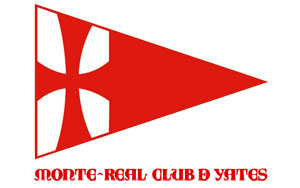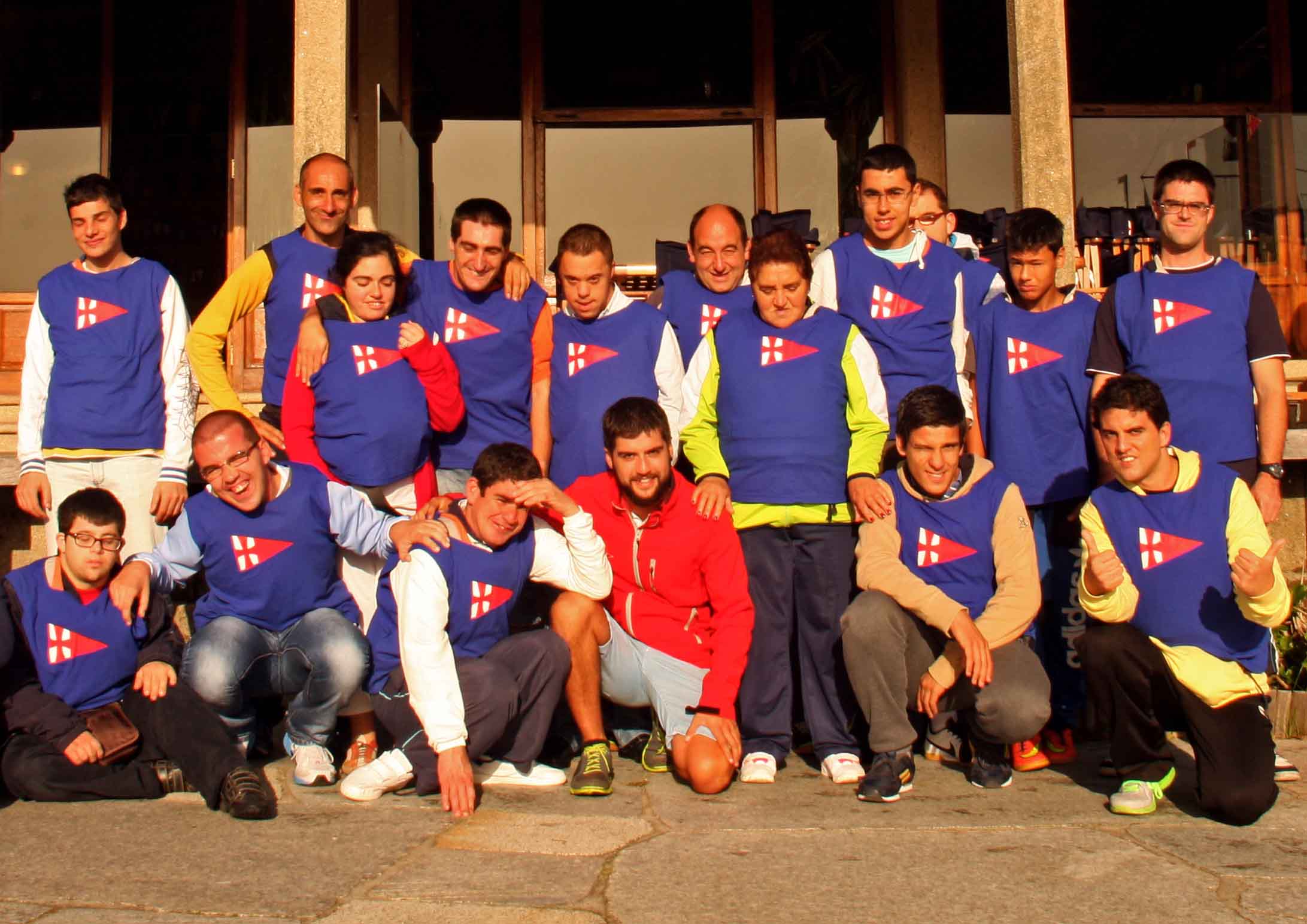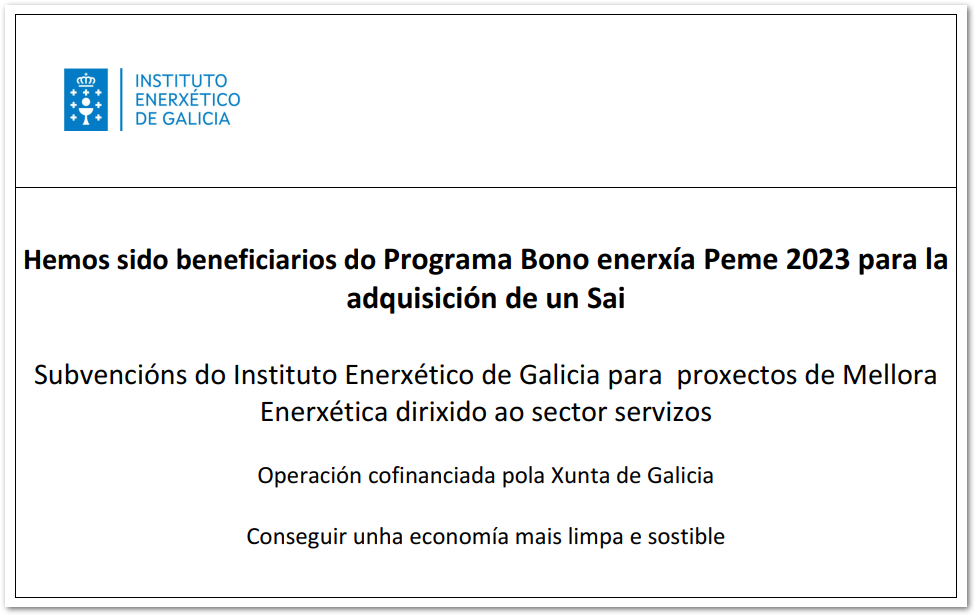INTERVIEW WITH DAVID FONTAN ADAPTED SAILING COACH AT MRCYB
In 2012, the Monte Real Yacht Club created, within its Sailing School, a special section of Adapted Sailing, with the aim of offering people with physical, mental, sensory or intellectual disabilities the possibility of going out to sea and practicing a sport that brings them countless benefits, both physical and social.
Two years after its birth, in this 2014, with the initiative already sailing smoothly, the club was deserving of a distinction from the Association of Environmental and Consumer Education (ADEAC) for the elimination of architectural barriers and its work with the disabled . A recognition that was possible, in part, thanks to the great work carried out with them by people like David Fontán.
A lover of the sea and nature, David is a Level 2 sailing technician by the Galician Sailing Federation, and the youngest coach of the Monte Real Club de Yates, where he has worked for years. At the Dinghy Sailing School he trains regatta teams and at the Adapted Sailing School he takes care of outings to sea with disabled people, something he does with great sensitivity and enormous dedication. Seeing him work is one of those things that restores one’s confidence in society and in his ability to make the world a better place.
David, what does the activity you do at Monte Real consist of with people who have some type of disability?
There are differences depending on whether they are physically or mentally disabled. With students who have mental disabilities, we first try to capture their attention through didactic support. We use tools such as videos, models, knot workshops, introductory games… and we carry out group dynamics to make them participate in the activity that we will later carry out in the water. We want them to get involved and be encouraged to take the initiative. Once in the water we carry out the different maneuvers little by little. We put them together in groups and give each one a specific function, so that they get to know the different positions on a boat and can rotate through them.
With boys and girls who have physical disabilities we use a more personalized method. First we condition the boats to the different needs of each student. We have to be permanently in communication with him, modifying, testing, analyzing and modifying the boat again, in order to ensure that the student has full control of all the mechanisms of the boat.Once this phase is over, we move on to a second, where We explain basic theory. We talk to them about the behavior of the wind, we show them the different maneuvers that we are going to carry out and the general operation of the boat… and so they can start sailing.
Ultimately, our job is to make the learning process easier for them, remove possible impediments and, of course, make the activity fun.
How is the experience of working with these types of people?
It is fabulous, because it shows the majesty of this sport. Sailing overcomes all kinds of obstacles, there are no barriers here, only new opportunities to show people with disabilities.
Whenever I go sailing with these guys I have the feeling that their limitations, or those imposed by society, disappear. Seeing them sail and enjoy the sea when just a few years ago it was something almost impossible, shows that we have worked hard and eliminated some of those barriers. It’s a very satisfying thing.
The Monte Real Adapted Sailing School was born with the aim of bringing these people closer to the world of sailing, so that they can get to know the sea and enjoy it. On a personal level, what are your aspirations as a coach?
My main aspiration is that everyone has the same opportunities when it comes to practicing this sport. Our philosophy is “Sailing for everyone” and as such we work to make it so. Of course I would also like to see all these boys competing at a high level, but first we have a bigger challenge, and that is to bring this sport to everyone.
When it comes to bringing the sport of sailing to everyone, what are the main barriers that a person with a disability may encounter when sailing and how can they be eliminated?
The main barriers begin with the facilities. Many clubs still do not have the appropriate access, and the work would begin by removing the architectural barriers. The next thing is to get appropriate and adapted boats, which allow their systems to be easily modified. It is also important to have mechanisms that facilitate access to the boat itself, such as cranes, couplings, ramps, etc.
In this sense, Monte Real has worked very hard, making the facilities accessible, buying adapted boats, building a crane so that people with physical disabilities can get on the boats. Much remains to be done, but firm steps are being taken.
Tell us more about the role played by the Monte Real Club de Yates in the integration of the disabled in the world of sailing
My opinion is that Monte Real has understood that sailing goes far beyond the limitations that people with some type of disability may have, and has assumed a very important role in promoting adapted sailing.
The coaches and all the people who work at the club are not willing to give these boys and girls more difficulties than they may have due to their disability. We are not going to add more obstacles in their lives.
The creation of the Adapted Sailing School is the clearest example of this philosophy, and we are convinced that it is only the beginning of a great project that will continue to grow over the years.
It is an interview with Rosana Calvo
You can see the image gallery of the MRCYB Adapted Sailing School HERE
If you have any questions for David, you can write to us at prensa@mrcyb.com and we will send it to him




